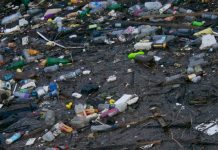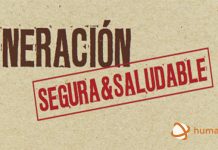(1) Dominican Republic
We are deeply concerned at the recent Dominican Constitutional Court’s ruling that the Dominican Republic’s act of recognition of the competence of the Inter-American Court of Human Rights is unconstitutional. This ruling may jeopardize the capacity of Dominican people to protect their rights, and deny them a system of protection designed to complement the Dominican legal framework and institutions.
Regional human rights bodies, such as the Court and the Inter-American Commission on Human Rights, play a very important role in the promotion and protection of human rights in the region. The Inter-American Court is a highly respected body. It has been crucial, in its 36 years of existence, in obtaining justice and reparation for large numbers of victims of human rights violations and in prompting legal, policy and institutional reform throughout the Americas. Its jurisprudence has set standards on issues such as reparations, amnesties, indigenous peoples, discrimination, and the State’s responsibility to protect individuals from violations, which have greatly influenced the development of the universal human rights system as well as other regional systems.
We are confident that the Dominican Government will reconfirm its commitment with this regional human rights protection system.
_________________________________
(2) Sri Lanka
Zeid condemns persistent disinformation designed to discredit UN investigation on Sri Lanka
GENEVA (7 November 2014) – UN High Commissioner for Human Rights Zeid Ra’ad Al Hussein on Friday criticized the continuing attacks by the Sri Lankan Government on the integrity of the UN Human Rights Office’s ongoing investigation into alleged grave human rights violations and abuses in Sri Lanka, and condemned the intimidation of human rights defenders and individuals who may wish to cooperate with the investigation.
“This continuing campaign of distortion and disinformation about the investigation, as well as the insidious attempts to prevent possible bona fide witnesses from submitting information to the investigating team, is an affront to the United Nations Human Rights Council which mandated* the investigation,” High Commissioner Zeid said.
“The Government of Sri Lanka has refused point blank to cooperate with the investigation despite being explicitly requested by the Human Rights Council to do so,” Zeid said. “Such a refusal does not, however, undermine the integrity of an investigation set up by the Council – instead it raises concerns about the integrity of the government in question. Why would governments with nothing to hide go to such extraordinary lengths to sabotage an impartial international investigation?” he added.
“The Government’s attempts to deter and intimidate individuals from submitting evidence to a UN investigation team is unacceptable conduct for any Member State of the United Nations which has committed to uphold the UN Charter,” the High Commissioner said. “Since the end of the conflict in 2009, Sri Lanka has continued to obstruct any independent investigation despite the persistent, compelling and widespread allegations that possible serious international crimes were committed by both sides during the conflict in Sri Lanka.”
The High Commissioner noted that Sri Lankan civil society organizations and human rights defenders have continued to be subjected to surveillance, harassment and other forms of intimidation. “A wall of fear has been created that has undoubtedly served to deter people from submitting evidence,” Zeid said.
The High Commissioner rejected this week’s “false and unsubstantiated accusations by the Sri Lankan Government that the conduct of the investigation has been ‘unprofessional’ and that its approach is ‘selective and biased.’”
He also rejected as “absurd” the accusation that the investigation was somehow compromised by the arrest of a man who was allegedly in possession of blank signed forms that would then be fraudulently filled in and submitted to the investigation.
“We don’t accept anything at face value. UN human rights investigators are trained to spot fraudulent submissions. The process of analysis and corroboration of information and evidence is well defined, refined and codified on the basis of many years’ experience,” Zeid said. “We have been directly involved with more than 40 Commissions of Inquiry, Fact-Finding Missions and similar inquiries. It is a false equation to suggest that because someone may have been trying to submit false submissions, the inquiry is discredited. In addition, the submissions form only a part of the investigation.”
The High Commissioner stressed that the UN had not formatted or distributed any forms for people to fill in, nor had the investigation team requested any individual or organization to go out and collect information on its behalf. He also rejected the imputation that the United Nations would ever provide monetary compensation in exchange for information.
“The methodology of the investigation has been made public through its terms of reference. It is based on standard methodology for such investigations aimed at ensuring the integrity of the process through the application of the principles of independence, impartiality, objectivity and protection of witnesses,” Zeid said.
“On the issue of transparency, we will not be releasing information on the interviews we are conducting, or where, or when they take place. This is, again, standard procedure for protecting sources of information especially where there is a clear risk that people providing information may suffer reprisals,” the High Commissioner said.
He urged the Government to “focus on the substantive issues under investigation instead of obscuring them by the constant questioning of procedures which – while not unimportant – are not the heart of the matter.” He encouraged the Government to begin engaging with the investigation.
The investigation team confirmed that the call for submissions ended on 30 October and that the submissions email address has ceased to exist.
The UN High Commissioner for Human Rights Zeid Ra’ad Al Hussein is this morning issuing a press release criticizing the continuing attacks by the Sri Lankan Government on the integrity of the UN Human Rights Office’s ongoing investigation into alleged grave human rights violations and abuses in Sri Lanka, and condemning the intimidation of human rights defenders and individuals who may wish to cooperate with the investigation.


























